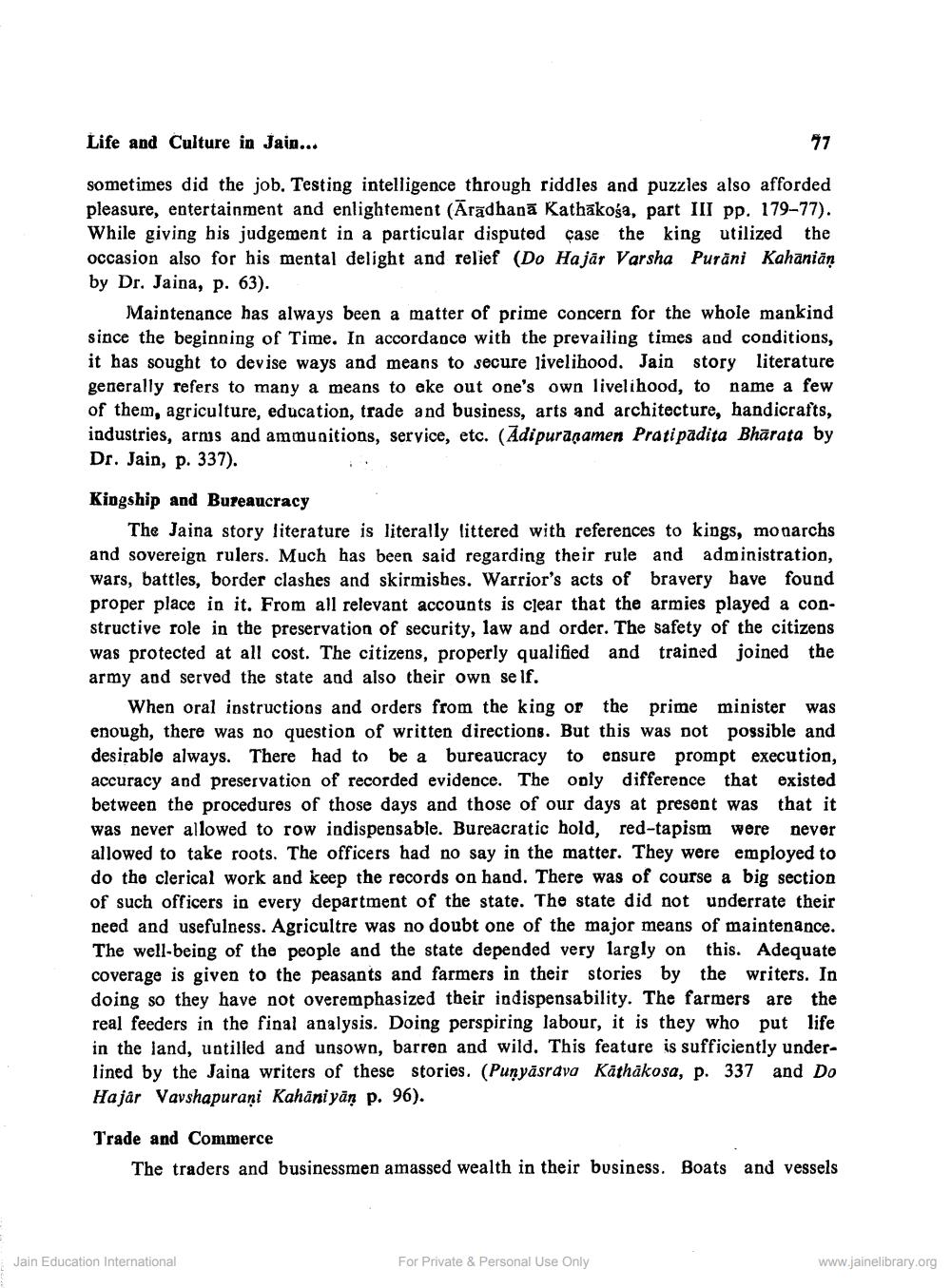________________
Life and Culture in Jain...
77
sometimes did the job. Testing intelligence through riddles and puzzles also afforded pleasure, entertainment and enlightement (Aradhanā Kathakosa, part III pp. 179-77). While giving his judgement in a particular disputed case the king utilized the occasion also for his mental delight and relief (Do Hajār Varsha Purani Kahanian by Dr. Jaina, p. 63).
Maintenance has always been a matter of prime concern for the whole mankind since the beginning of Time. In accordance with the prevailing times and conditions, it has sought to devise ways and means to secure livelihood. Jain story literature generally refers to many a means to eke out one's own livelihood, to name a few of them, agriculture, education, trade and business, arts and architecture, handicrafts, industries, arms and ammunitions, service, etc. (Adipuranamen Prati padita Bhārata by Dr. Jain, p. 337).
Kingship and Bureaucracy
The Jaina story literature is literally littered with references to kings, monarchs and sovereign rulers. Much has been said regarding their rule and administration, wars, battles, border clashes and skirmishes. Warrior's acts of bravery have found proper place in it. From all relevant accounts is clear that the armies played a constructive role in the preservation of security, law and order. The safety of the citizens was protected at all cost. The citizens, properly qualified and trained joined the army and served the state and also their own self.
When oral instructions and orders from the king or the prime minister was enough, there was no question of written directions. But this was not possible and desirable always. There had to be a bureaucracy to ensure prompt execution, accuracy and preservation of recorded evidence. The only difference that existed between the procedures of those days and those of our days at present was that it was never allowed to row indispensable. Bureacratic hold, red-tapism were never allowed to take roots. The officers had no say in the matter. They were employed to do the clerical work and keep the records on hand. There was of course a big section of such officers in every department of the state. The state did not underrate their need and usefulness. Agricultre was no doubt one of the major means of maintenance. The well-being of the people and the state depended very largly on this. Adequate coverage is given to the peasants and farmers in their stories by the writers. In doing so they have not overemphasized their indispensability. The farmers are the real feeders in the final analysis. Doing perspiring labour, it is they who put life in the land, untilled and unsown, barren and wild. This feature is sufficiently underlined by the Jaina writers of these stories. (Punyāsrava Käthākosa, p. 337 and Do Hajár Vavshapuraņi Kahāniyān p. 96).
Trade and Commerce
The traders and businessmen amassed wealth in their business. Boats and vessels
Jain Education International
For Private & Personal Use Only
www.jainelibrary.org




